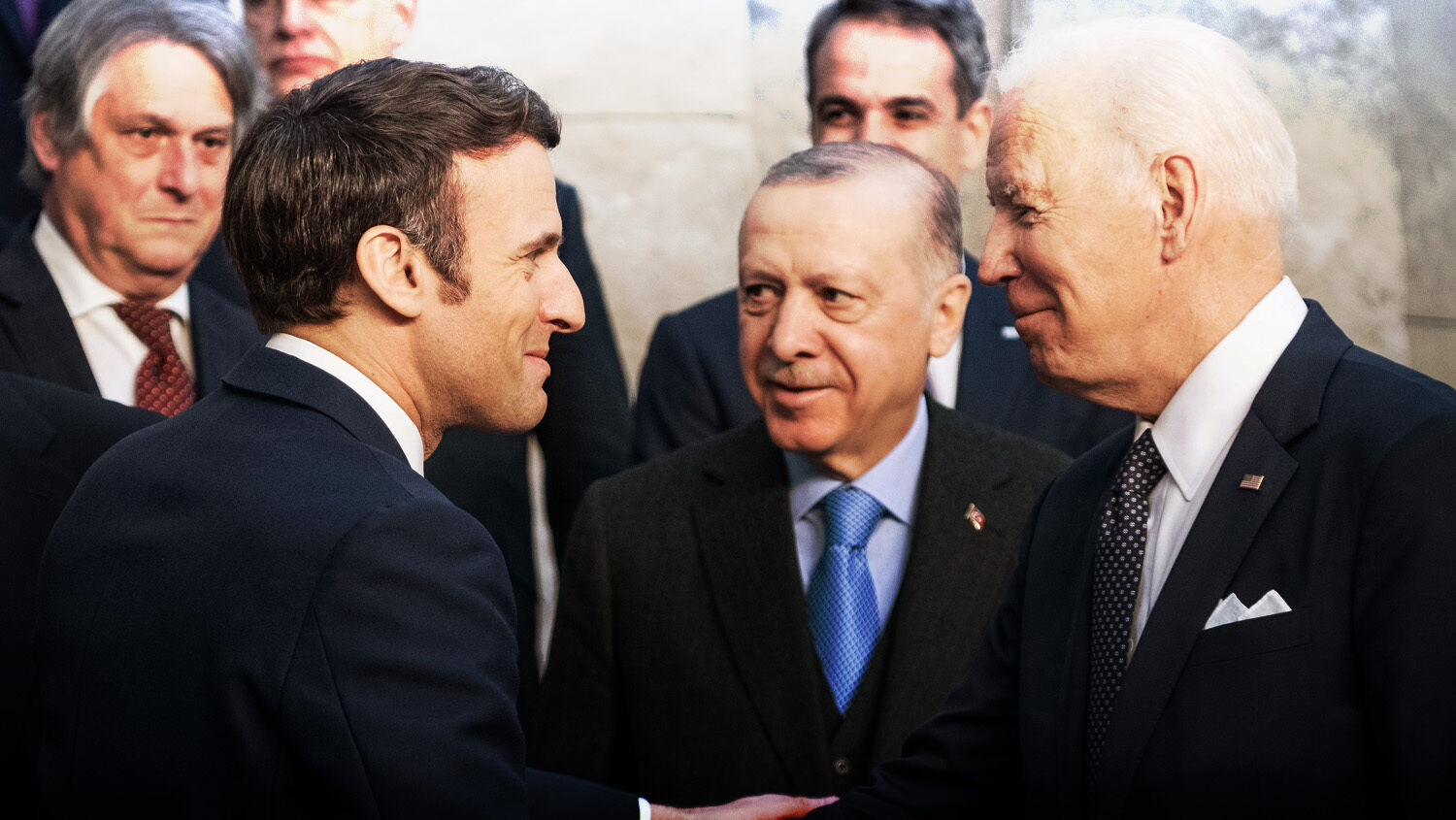
Europe: America’s Puppet?
Anti-American sentiments are rising in Europe over the war in Ukraine. Its major economies—Italy, Germany and France—had close relations with Russia before the war; now they are bound with the United States in an alliance against Russia. It would be natural to blame Russia for starting this bloody war against Ukraine, but others blame the U.S. This sentiment is particularly strong in France, causing the Spectator to ask on February 13: “Has Macron Turned France Into America’s Poodle?”
French President Emmanuel Macron is certainly no stranger to peddling anti-American sentiments. But many in France believe he is not going far enough in resisting America’s push to help Ukraine. The French loved Macron when he talked to Russian President Vladimir Putin; they hated him when he announced French plans to send tanks to Ukraine. This is somewhat ironic because the U.S. has supported Ukraine more than the entire European Union combined, and France has contributed only a fraction of that. Russia’s invasion of Ukraine is also strategically more concerning to Europe than to the U.S.
But the fears are not completely without reason.
“The fact is,” a senior European official told Politico, “if you look at it soberly, the country that is most profiting from this war is the U.S. because they are selling more gas and at higher prices, and because they are selling more weapons.” During the crisis, the dollar has risen in strength compared to other currencies. The U.S. received lucrative weapons deals with European partners. Even though U.S. taxpayers have suffered, some fear the war is a business for the U.S. Politico wrote on November 30: “It’s gotten cold in Europe, the economy is tanking, and the natives are getting restless. There’s only one answer: Blame America.”
Thierry de Montbrial, chairman of the French Institute of International Relations, noted that the U.S. will be “the big winner from this war.” “Sanctions hurt us a little more each time,” he said. “We become a little more dependent on the United States, whose unemotional strategy is a combination of values and interests.”
Europeans also remember America’s intervention in Iraq. The U.S. called on Europe to support the mission. In the end, those who abstained rejoiced and those who joined regretted it.
Spectator noted that France’s opposition to helping Ukraine is not due to a favorable view of Putin; according to a February poll, only 9 percent view Putin favorably, compared with 60 percent for Ukrainian President Volodymyr Zelenskyy. Many Europeans fear Putin—and don’t want to provoke him. Of course, appeasement never works, but that’s the sentiment.
In France’s last presidential election, eight of the 12 candidates campaigned on the promise of withdrawing from the North Atlantic Treaty Organization. Macron was one of the few who didn’t (though he called the alliance brain dead and demanded European independence). Spectator wrote:
French opposition to the war is predicated on several factors; the worsening economic situation in the country is one, and the fear of a nuclear conflict another. But it’s also a result of Gallic anti-Americanism. The hard left dislike America because of its capitalism; the right for its cultural undermining of the Republic over the years with its food, films and, more recently, its progressive ideology, which is slowly but steadily infiltrating French society.
Similar sentiments are rising all across Europe. Those who have a negative view of the U.S. feel more and more justified. We must take note of France’s anti-Americanism.
Christopher S. Chivvis, director of the American Statecraft Program at the Carnegie Endowment, wrote: “Macron’s predecessors have been aggravating Washington for more than 50 years, starting with President Charles De Gaulle, who lambasted America for the Vietnam War, protested the U.S. dollar’s global dominance, built France’s own nuclear weapons, and distanced France from nato.” But Chivvis believes that an independent France could be an asset to the U.S. On Nov. 30, 2022, he wrote: “What Makes France So Aggravating to the United States Is Also What Makes It So Valuable.”
At the Trumpet, we believe the complete opposite.
In 2018 and 2019, Trumpet editor in chief Gerald Flurry gave a series of Key of David television programs and wrote a series of articles on France’s drift from America. Even though the administration in the White House has since changed, this trend has continued. In “France Is Betraying America and Fulfilling Bible Prophecy!” Mr. Flurry pointed to the biblical identity of both France and the U.S. and showed that Bible prophecy reveals that France will betray America in our day.
